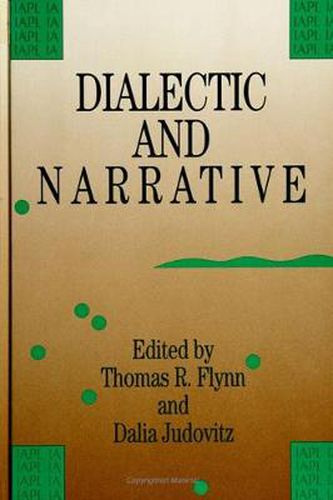Readings Newsletter
Become a Readings Member to make your shopping experience even easier.
Sign in or sign up for free!
You’re not far away from qualifying for FREE standard shipping within Australia
You’ve qualified for FREE standard shipping within Australia
The cart is loading…






Dialectic and narrative reflect the respective inclinations of philosophy and literature as disciplines that fix one another in a Sartrean gaze, admixing envy with suspicion. Ever since Plato and Aristotle distinguished scientific knowledge (episteme) from opinion (doxa) and valued demonstration through formal final causes over emplotment (mythos), the palm has been awarded to dialectic as the proper instrument of rational discourse, the arbiter of coherence, consistency, and ultimately of truth. The matter becomes more complicated when we recognize the various uses of the term dialectic in the tradition, some of which complement and even overlap the narrative domain. By confronting these concepts with one another, either de facto or ex professo, the following essays not only raise anew the ancient questions of the identities of philosophy and literature, but do so in the context of recent postmodern challenges to their relative autonomy.
$9.00 standard shipping within Australia
FREE standard shipping within Australia for orders over $100.00
Express & International shipping calculated at checkout
Stock availability can be subject to change without notice. We recommend calling the shop or contacting our online team to check availability of low stock items. Please see our Shopping Online page for more details.
Dialectic and narrative reflect the respective inclinations of philosophy and literature as disciplines that fix one another in a Sartrean gaze, admixing envy with suspicion. Ever since Plato and Aristotle distinguished scientific knowledge (episteme) from opinion (doxa) and valued demonstration through formal final causes over emplotment (mythos), the palm has been awarded to dialectic as the proper instrument of rational discourse, the arbiter of coherence, consistency, and ultimately of truth. The matter becomes more complicated when we recognize the various uses of the term dialectic in the tradition, some of which complement and even overlap the narrative domain. By confronting these concepts with one another, either de facto or ex professo, the following essays not only raise anew the ancient questions of the identities of philosophy and literature, but do so in the context of recent postmodern challenges to their relative autonomy.